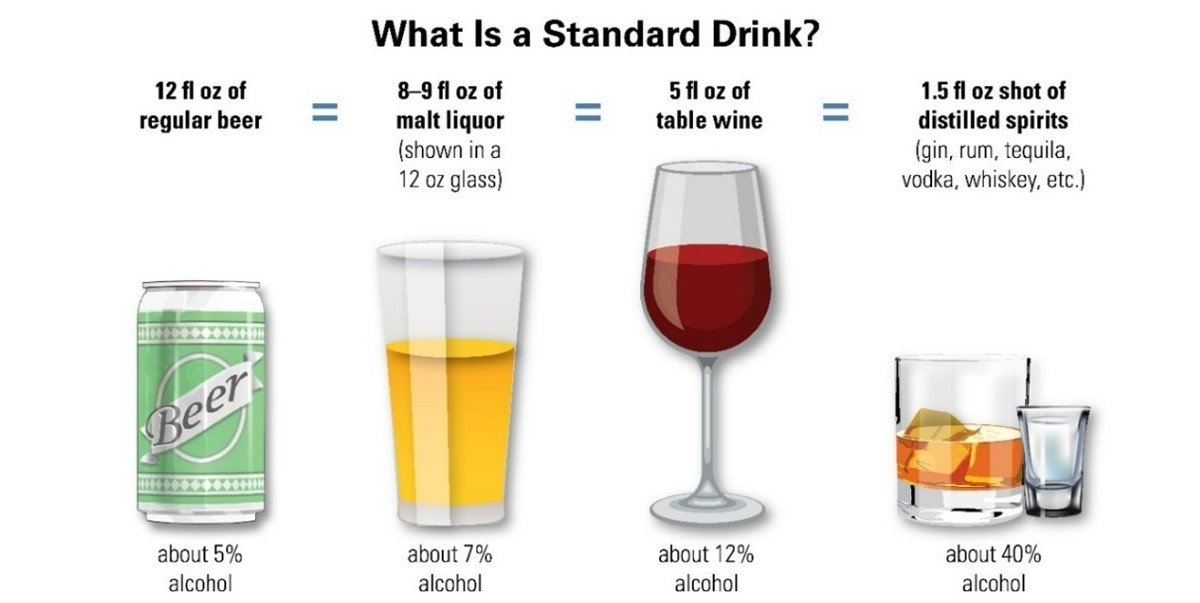Alcohol Use Basics
Defining a Drink
Different types of alcoholic drinks have varying amounts of alcohol content. A "standard" drink is 14 grams or 0.6 fl. oz. of pure alcohol. It's helpful to understand how much alcohol is in your drink so that you may make informed decisions if you choose to drink. The illustration below shows the alcohol content of "one standard drink" across alcoholic beverage types.

Source:
National Institute on Alcohol Abuse and Alcoholism
Levels of DrinkingDue to biological differences in body structure and chemistry, most women absorb more alcohol and take longer to metabolize it than men. The effects of alcohol last longer and usually occur more quickly among women as compared to men. After drinking the same amount of alcohol, women tend to have higher blood alcohol levels than men. These differences make women more susceptible to the long-term negative health effects of alcohol compared with men. To learn more, visit the Centers for Disease Control and Prevention's webpage on excessive alcohol use and risks to women's health.
Table 1 defines drinking behavior for men and women.
Table 1.
| Moderate Drinking | Up to 1 drink in a day | Up to 2 drinks in a day |
Heavy Drinking
| 8+ drinks/week | 15+ drinks/week |
| Binge Drinking | 4+ drinks on an occasion | 5+ drinks on an occasion |
Excessive alcohol use is heavy drinking, binge drinking, or any drinking by pregnant women or anyone younger than 21.
To reduce the risk of alcohol-related harms, the 2020-2025 Dietary Guidelines for Americans (Guidelines) recommends that adults of legal drinking age can choose not to drink, or to drink in moderation by limiting intake to two drinks or less in a day for men or one drink or less in a day for women, on days when alcohol is consumed.
The Guidelines also do not recommend that individuals who do not drink alcohol start drinking for any reason. Also, if adults of legal drinking age choose to drink alcohol, drinking less is better for health than drinking more.
Check Your Drinking
Do you want to check your alcohol use? You can anonymously check your drinking habits, identify barriers and motivators for drinking less, and build a plan to make healthier choices with this quick, easy, and confidential screening tool: Check Your Drinking
